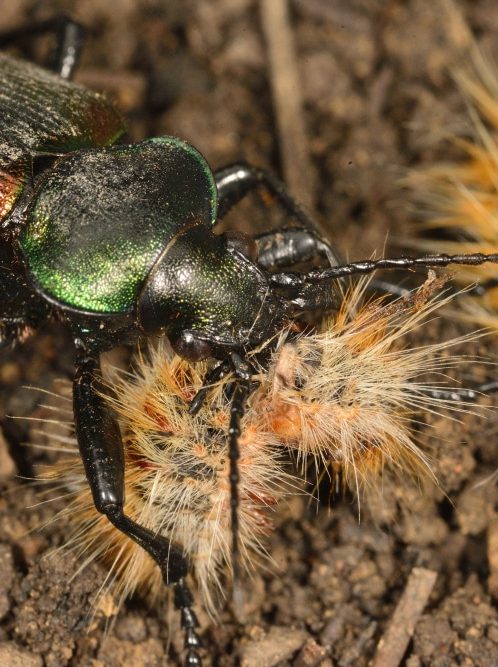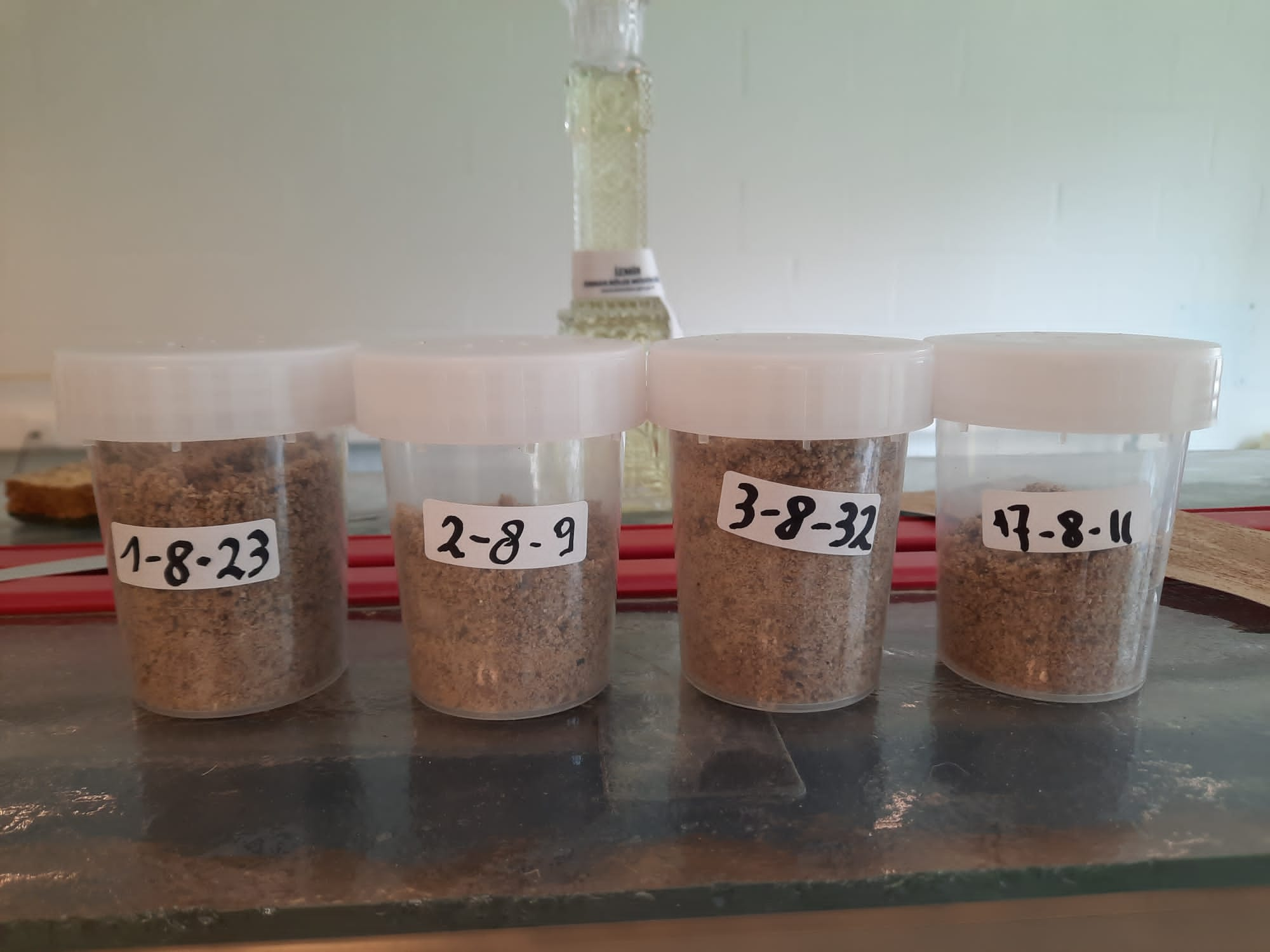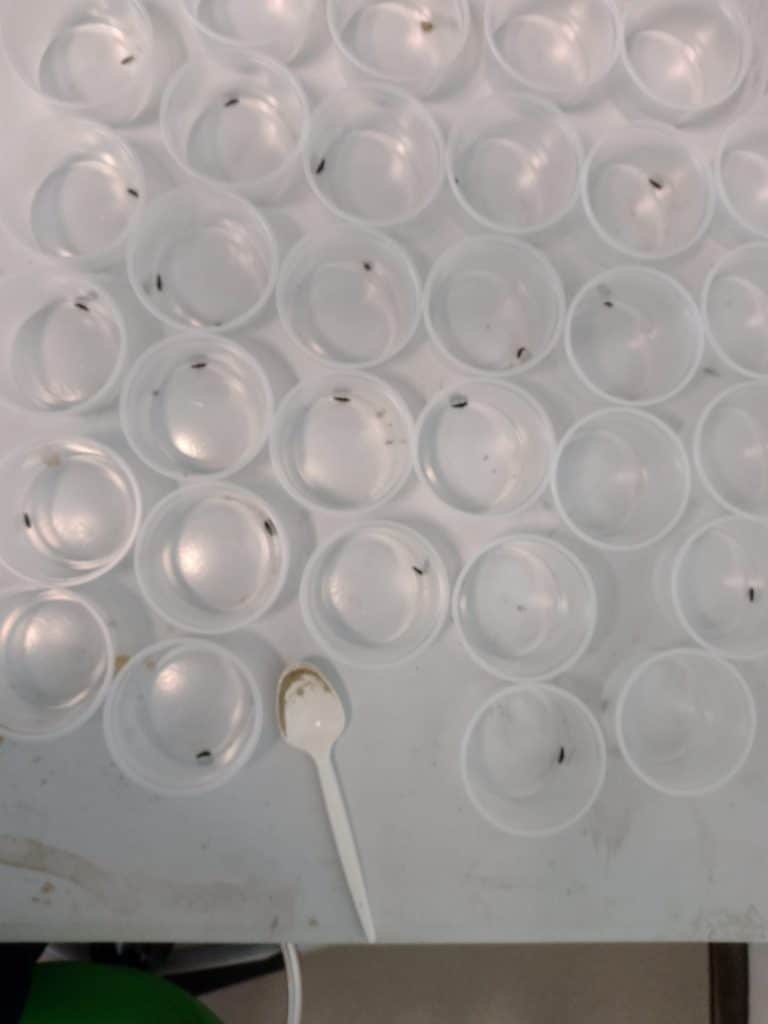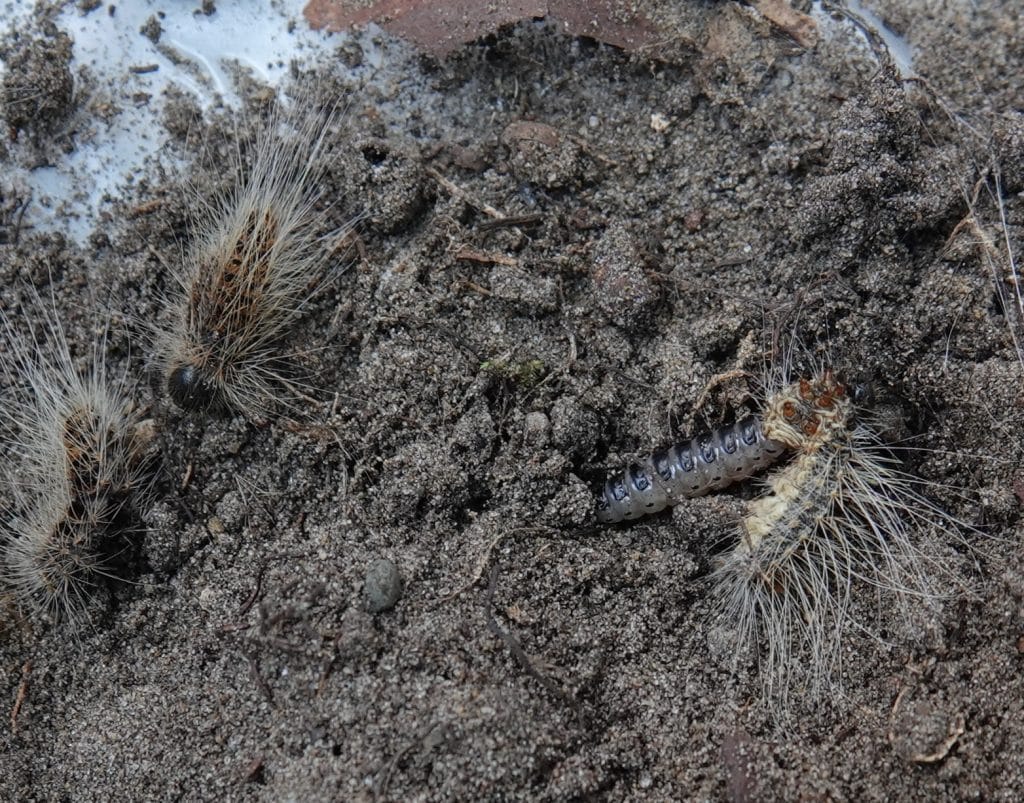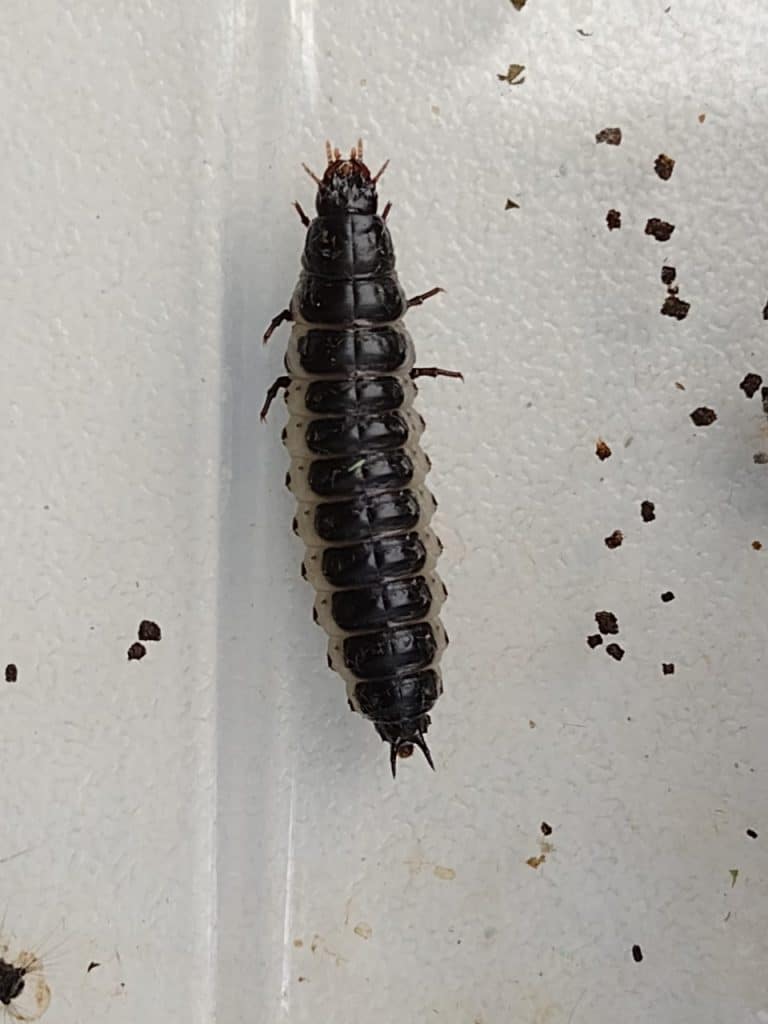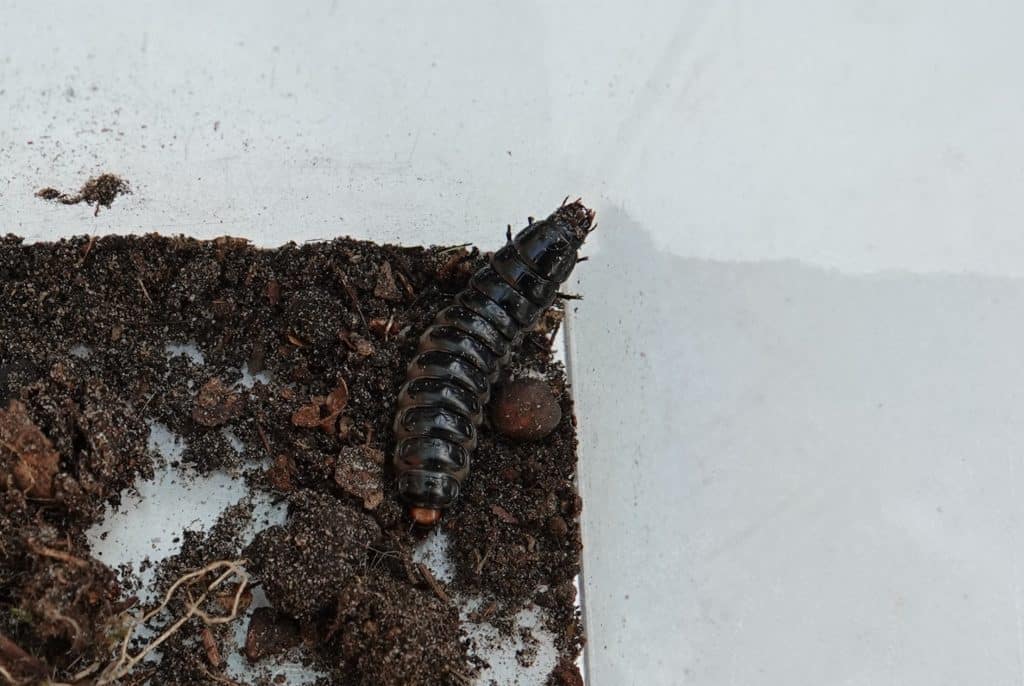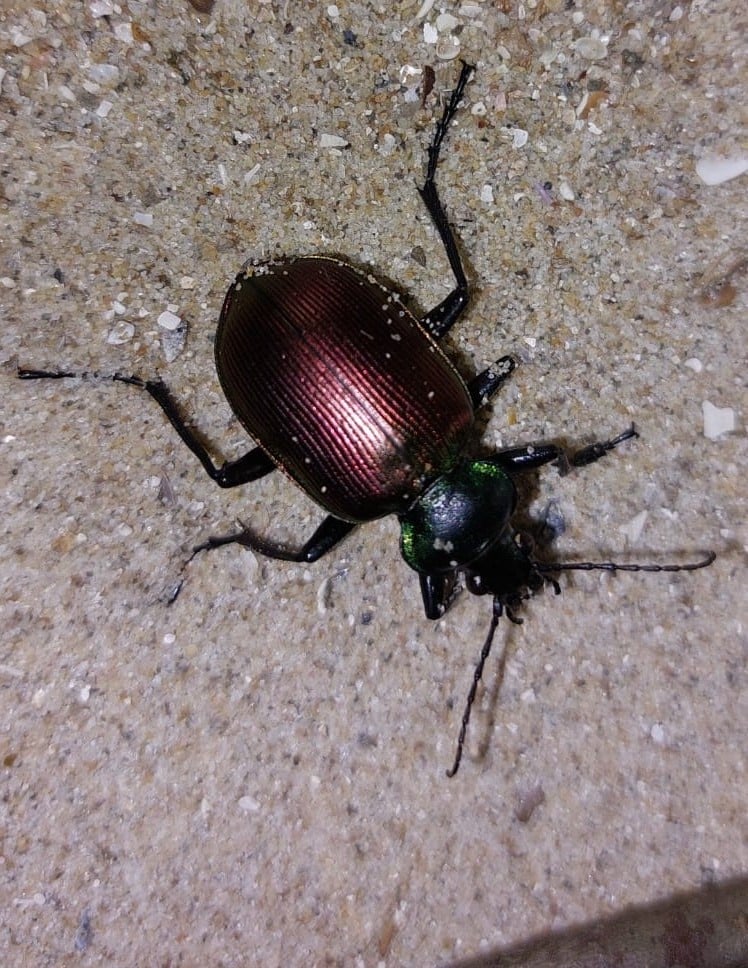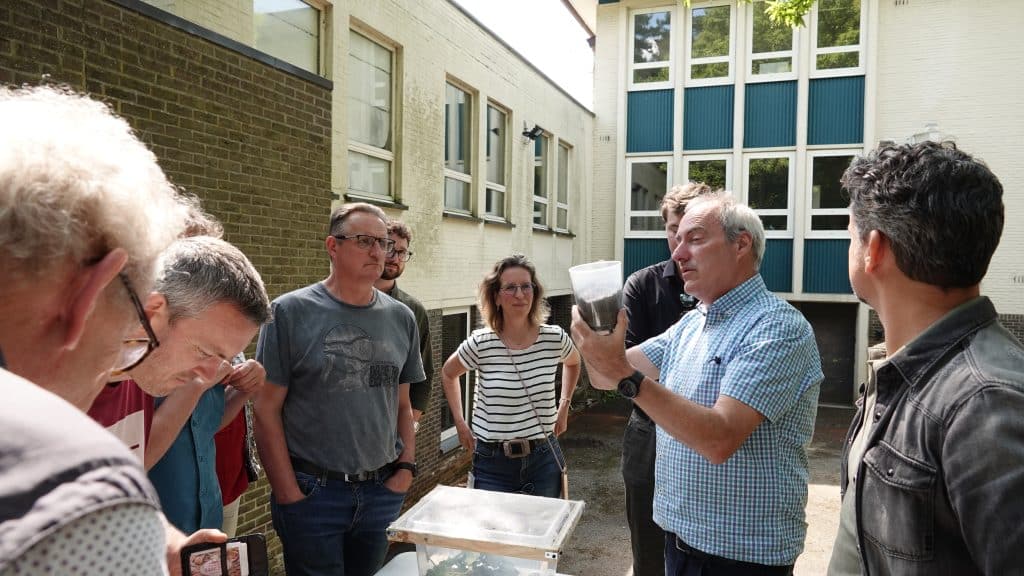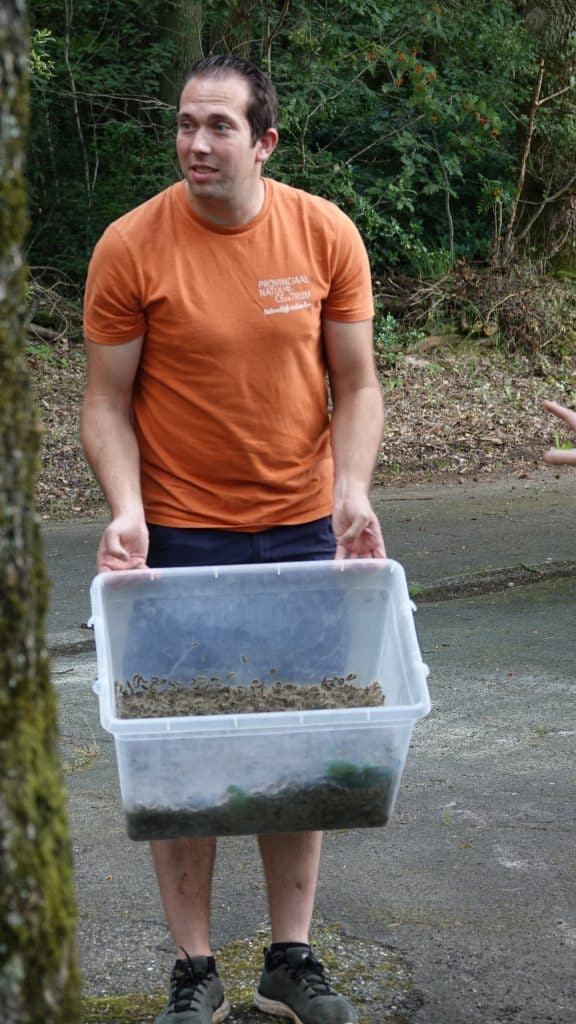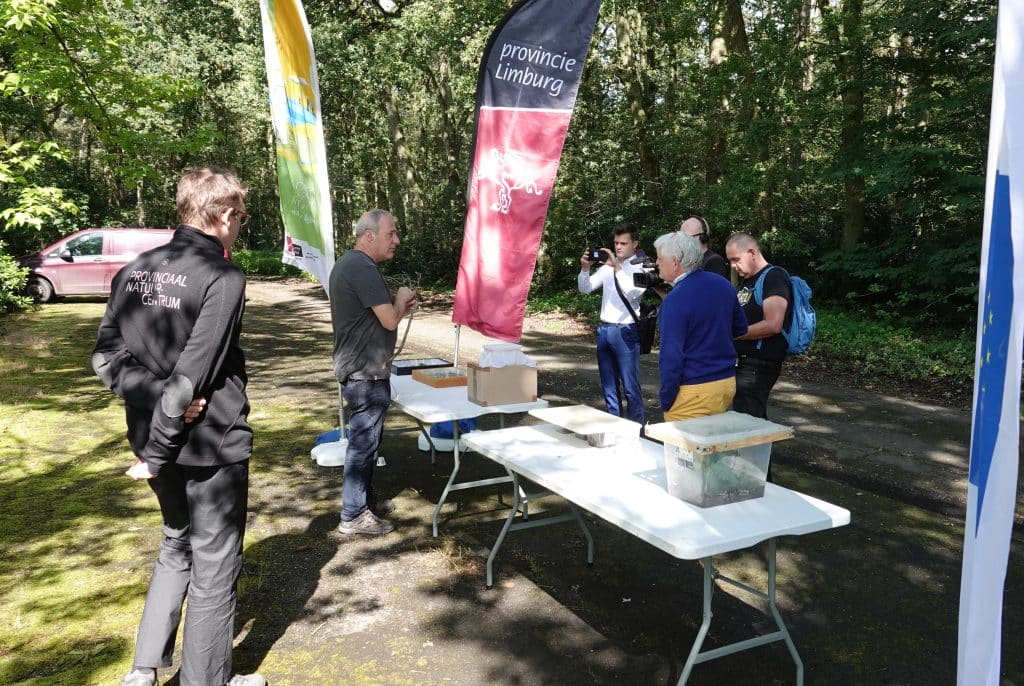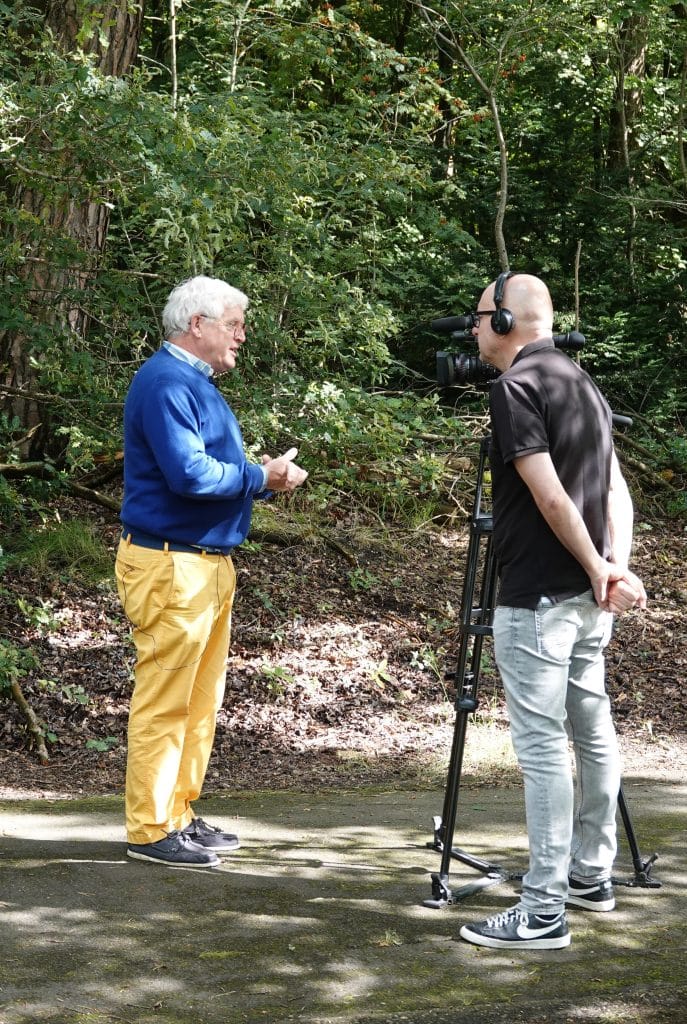Once again a gang of robbers active in Limburg …
Lots of action and a major breakthrough in the breeding experiment with the Forest Caterpillar Hunter
A few centuries ago, the province of Limburg was notorious for the ‘Bokkenrijders’, a violent gang of robbers. Today it is another robber, the Forest Caterpillar Hunter, that is very active there. The Limburg breeding experiment with this beetle, one of our natural allies in the management of the oak processionary caterpillar, entered its third year in 2024. And this year our efforts were crowned with success!
After the first failed attempt in 2022 with the Forest Caterpillar Hunter of a population that is used in Turkey in the fight against the Pine Processionary caterpillar, we received a new shipment of the same species of beetles in June 2023, but from a population that mainly eats Oak Processionary caterpillars. In the lab in Bokrijk they were pampered for a few more weeks so that they could fatten up and start a long winter sleep.
This spring they gradually emerged from the ground, just at the moment that the first caterpillars appeared in our trees. It was up to Toon, our field worker, to collect the necessary caterpillars. An adult Forest Caterpillar Hunter eats about 10 caterpillars a day, so there was work to be done. And since the caterpillar nests are not thickly sown this year, we had to search halfway through the Netherlands to collect a sufficiently large supply of caterpillars.
But our efforts were rewarded. Soon the beetles started laying eggs. Each egg was carefully removed from the breeding boxes, placed in a separate jar, and checked regularly. After just a few weeks the larvae emerged. Just like their parents, they turned out to be real gluttons, devouring a large portion of live caterpillars every day. In record time the larvae grew up, pupated and emerged as adult beetles, the first generation of Forest Caterpillar Hunters bred in Western Europe, and our hope in anxious times.
The new generation of Forest Caterpillar Hunters now numbers more than 70 specimens. In order to better monitor the growth of the larvae and to experiment with different types of food, part of them was transferred to the Thomas More University in Geel. Both subpopulations are doing well and are now gradually returning to their overwintering sites.
Ample attention for our breeding success
To celebrate the success of our breeding experiment, end of June we organized a demonstration moment for our ambassador municipalities and other interested parties in the Provincial Nature Center in Bokrijk, where our lab is located. During both occasions, Luc and Toon presented the results of the breeding experiment and gave a tour of the lab.
In July, we also invited the local and national press to Bokrijk. Provincial Executive Bert Lambrechts and team member Luc Crevecoeur spoke to the press and explained our experiments and the situation of the Oak Processionary caterpillar in Flanders. The news was enthusiastically picked up by the media, as for example in this video from the Flemish TV.
